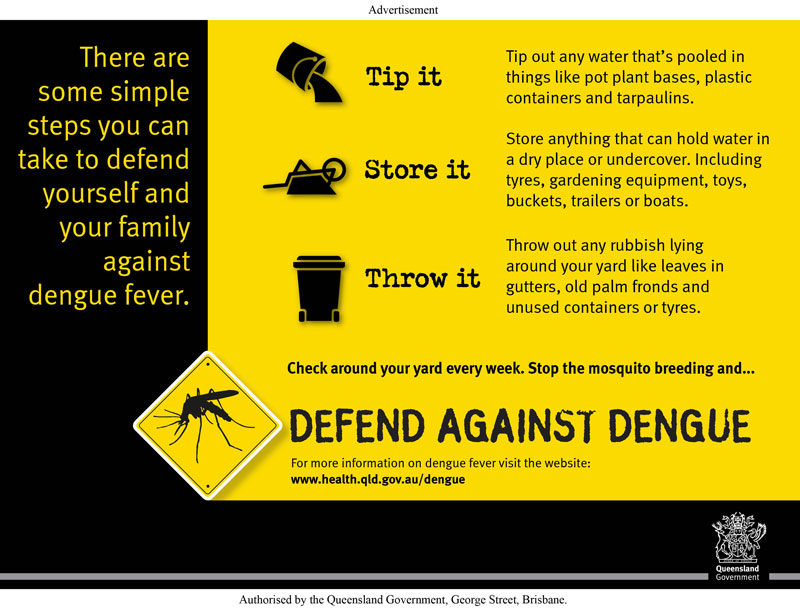Laboratory tests have confirmed a case of imported dengue fever in a Bowen resident.
The Mackay Public Health Unit launched a response to the suspected case last Friday after a resident returned from overseas and became unwell.
Public Health Medical Officer Dr Steven Donohue said testing confirmed the resident had type 2 dengue fever acquired overseas.
“All residents should take immediate action to reduce the risk of a dengue outbreak.”
While the dengue virus is normally not present in Bowen an imported case could be spread by local dengue mosquitoes.
Environmental Health Officers have door-knocked all residences within 50 metres of the case house, spraying homes and doing yard inspections for breeding sites.
“Dengue is a horrible illness, and serious complications can occur so it’s important Bowen people take immediate steps to protect themselves and the community,” Dr Donohue said.
The dengue mosquitoes (Aedes aegypti) only breed around homes and in urban areas, not in swamps or creeks.
“I urge all residents, particularly those in Bowen, to take immediate action to prevent dengue cases,” he said.
People should:
- Check their yards once a week for mosquito breeding. Tip out, flush out, throw away or dry-store any containers holding water in which mosquitoes can breed
- use indoor surface spray, mozzie zappers and coils around the house to discourage dengue mosquitoes and avoid being bitten.
Common dengue-mosquito breeding sites include tyres, buckets, toys and pot-plant bases.
Residents are also urged to ensure roof gutters are not blocked and breeding mosquitoes.
Dengue fever has many symptoms and people usually experience a combination of symptoms including:
- sudden fever and extreme tiredness
- intense headache (especially behind the eyes)
- muscle and joint pain
- loss of appetite
- vomiting, diarrhoea, abdominal pain
- a metallic taste in the mouth
- red or macular (small, flat red spots) rash occurs in half of cases
- minor bleeding from nose and gums
If you are concerned, visit your GP immediately.



